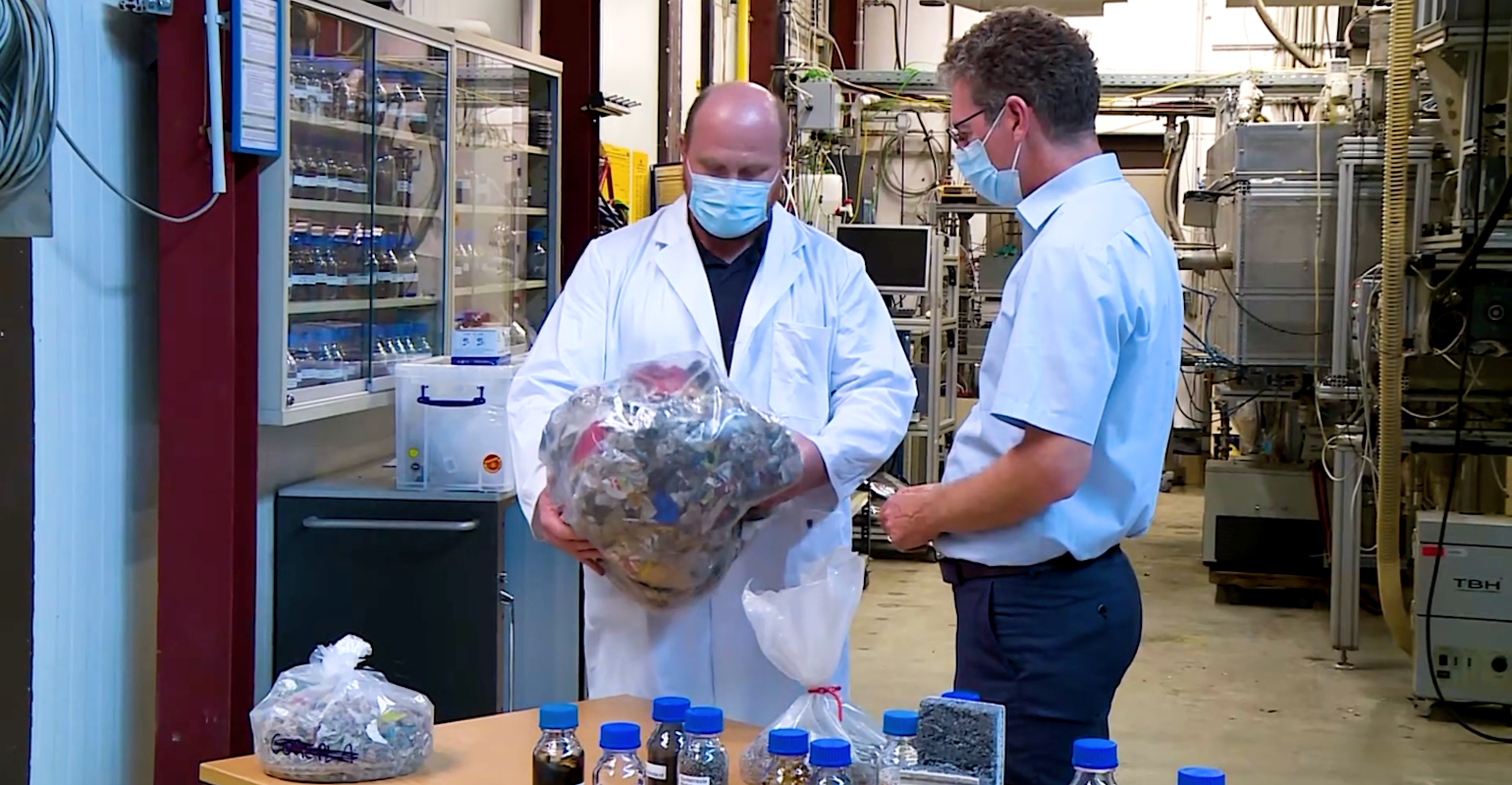
Audi Gives Automotive Plastics New Lease on Life

As part of Thinktank Industrial Resource Strategies, researchers at the Karlsruhe Institute of Technology (KIT) have been working with Audi for six months on a pilot project devoted to chemical recycling of plastics from automotive manufacturing. Now that the project has been completed, it is clear that chemical recycling of mixed plastic waste is both technically feasible and environmentally and financially promising, they said.
The plastic waste from automotive manufacturing can be processed into pyrolysis oil and could replace petroleum as a raw material for the production of high-quality plastic components in Audi models. The material cycles closed in this way save valuable resources and energy, and reduce greenhouse gas emissions. As such, chemical recycling represents a viable alternative to energy recovery and complements mechanical processing. Audi could use fossil resources for longer and scale back the procurement of additional fossil resources. Together with partners from the chemical industry and KIT, Audi now plans to take the next step and research industrialization.
From fuel tanks and airbag covers to radiator grilles, numerous components in cars are made of plastics. They need to meet stringent safety, heat resistance, and quality requirements. This is why plastic automotive components that are subject to particularly high levels of stress, to date, can only be manufactured from virgin-quality materials. Additionally, mixed plastic waste is often not available for mechanical recycling. For this reason, the KIT thinktank launched a pilot project for chemical recycling with Audi at the end of 2020. Within the scope of the project, tests were carried out to determine the extent to which mixed automotive plastic fractions can be fed back into a resource-friendly cycle via chemical recycling.
Under the leadership of Prof. Dr. Dieter Stapf from the KIT Institute of Technical Chemistry and Dr. Rebekka Volk from the KIT Institute of Industrial Management and Industrial Production (IIP), scientists investigated the technical feasibility of the process as well as its cost-effectiveness and its impact on the environment. The results show that chemical recycling can be used to process the mixed plastic waste from automotive manufacturing into pyrolysis oil, which can replace petroleum. Because they exhibit the same high quality as virgin materials, plastics made from pyrolysis oil can be reused in automotive manufacturing to produce plastic components that are subject to high levels of stress. Audi is one of the first automakers to test this recycling method in a pilot project with automotive plastic waste. Audi said it intends to intensify its research together with KIT. The partners plan to test its industrialization potential in a follow-on project that would lengthen the amount of time that fossil-fuel resources can be used and reduce their use.
“An initial assessment shows that chemical recycling may be superior to energy recovery from both a financial and environmental perspective,” explained Volk. “We are comparing this process with energy recovery, as this is the current recovery route for the automotive plastic waste we analyzed. An initial comparison shows that the costs for chemical recycling are on par with the prices that have to be paid for energy recovery. Furthermore, chemical recycling offers the opportunity to recycle much of the carbon and reuse it in the production of new plastic components,” said Volk.
Complementing mechanical recycling, pyrolysis also converts mixed-waste plastics and composites into a liquid chemical feedstock while separating out unwanted constituents. After a purification step, the pyrolysis oil can be processed into new plastic using conventional industrial processes, thus replacing primary raw materials from fossil energy sources, such as petroleum.
Now that the research has proven its technical feasibility, Audi intends to scale up the process together with its partners. “We want to establish intelligent cycles in our supply chains and use resources efficiently,” said Marco Philippi, Head of Procurement Strategy at Audi. “Chemical recycling harbors tremendous potential in this regard, because if plastic components can be manufactured from pyrolysis oil instead of petroleum without any loss of quality, it would be possible to significantly increase the percentage of sustainably manufactured components in cars. Over the long term, this process may also play a role in end-of-life vehicle recycling.”
Up to now, Audi has primarily used recycled single-variety plastics. A current example is the use of PET in the Audi A3 — three different fabric covers are available for car seats, containing up to 89% recycled material. The new Audi Q4 e-tron electric SUV also contains components with recycled content, including mounting brackets, wheel arch liners, fender covers, floor paneling, and wheel spoilers. A total of 27 components contain recycled material. But in the future, mixed high-performance plastics produced via chemical recycling could also be added.
Audi’s cross-site Mission: Zero environmental program also focuses, among other issues, on resource conservation, waste avoidance, and closed recycling loops in production. For example, plastic waste from the A6 and A7 assembly line at the Neckarsulm site has been sorted, shredded, and processed into 3D printing filament. This plastic thread is used to produce precision-fit assembly aids for production with the help of 3D printers. Audi’s 3D printing team is working closely on this with the Dutch start-up 3devo, which also supplied the necessary technology.

Leave a Reply